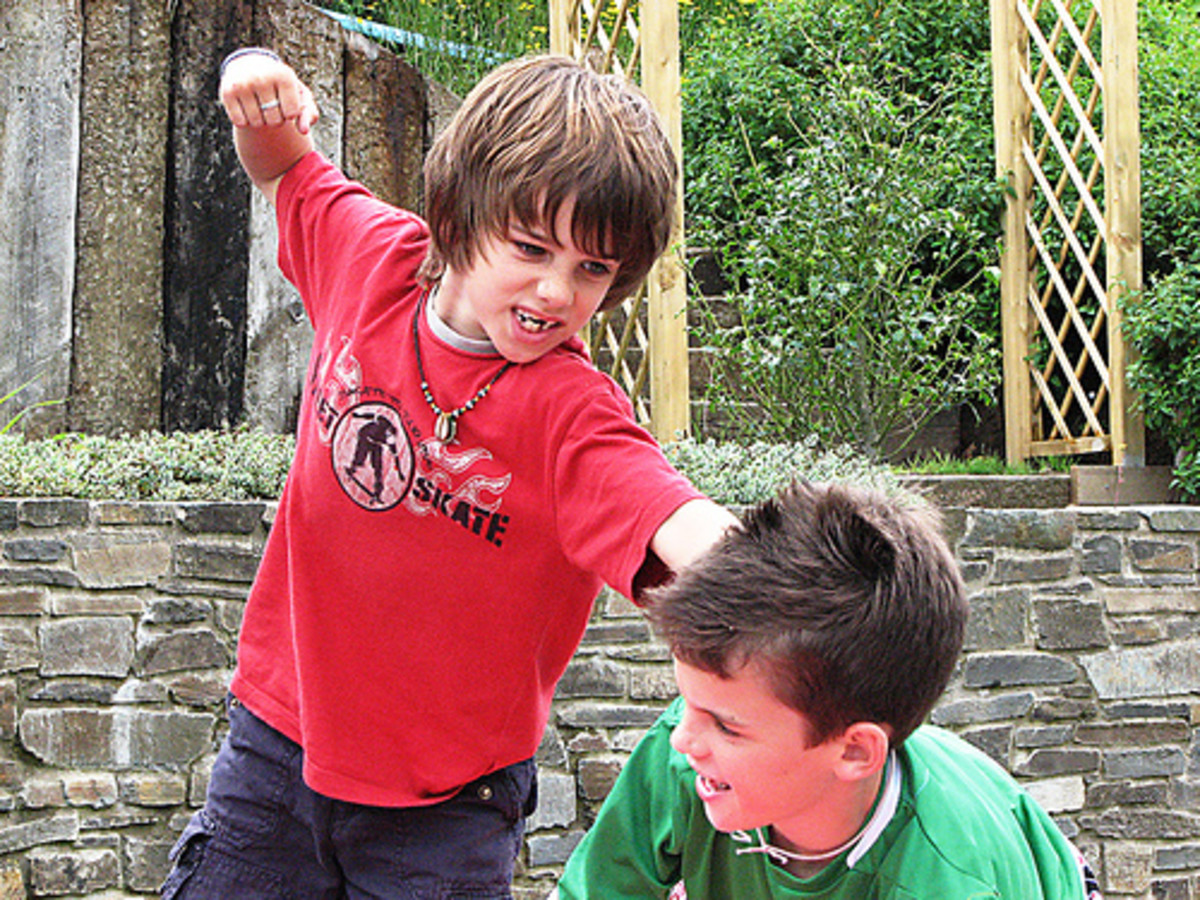What Were Your Parents' Perception Of You As A Child And How This Perception Affected You As An Adult, Part II

A Child Usually Fulfills His/Her Parents' Image of Him/Her
While there are parents who raise their children to believe in themselves and to possess positive beliefs about themselves, there are parents who are well...... you know. Yes, they are diametrically quite the opposite. However, many of these parents are much in denial regarding their parental technique regarding interfacing with their children.
These parents strongly assert that they are raising their children correctly. They further insist that they are just being truthful regarding their children's assessments and abilities. They steadfastly maintain that they do not believe in "sugarcoating the facts" to their children. They maintain that the way they are raising their children is to make them improve and to eventually become contributing adults.
Yes, there are parents whose method of childrearing can be aptly described as mildly and moderately abusive to say the least. They do not believe in sparing the verbal rod when it comes to correcting their children. They believe that their duty as parents is to castigate and shock the child into acceptable behavior. They maintain that there are no means too egregious to accomplish their parental goal.
These are the parents who are not loathe to using harsh disciplinary methods to get their children into line. They are the ones who go completely ballistic if their children make a mistake or fall short of the parents' expectations. They portend that their children should be perfect and/or as near perfect as possible. Nothing else should suffice in the eyes of these parents. According to such parents, either their children are perfect or they are complete dolts.
In the eyes of such parents, the child and the act committed are one entity. They maintain that there is no separation. For example, their child has five As and two B+s on his/her report card; however, he/she has a C in math. The parents refuse to acknowledge that the report card is mostly good. They are concentrating on the one C.
This child is not going to be congratulated for having a good report card because of the one C. These parents are going to harp on the one C. This C is now overriding the fact that the child earned mostly As and B+s on the report card. According to this parents, the child is considered to be inept because of the one C. The As and B+s are not now not even recognized by the parents because of that C. As a result of the parents' constant haranguing regarding the one C, the child's self-worth has totally diminished. He/she was probably once happy that he/she was still a good student in spite of the one C but no more!
These parents refuse to give the child any quarter. They assert that their child is not so smart because of the one C. They cannot believe that the child has a C. To them, this child is a total affront to them as parents. They elect not to comprehend that sometimes a subject can be difficult and a child may study and apply himself/herself to the utmost and still earn a C. This reasoning is beyond the understanding of such parents who insist that their child must be perfect and/or near perfect at all times.
Of course, the child sense the negative reaction of the parents. He/she feels discouraged and starts to believe that he/she should never attempt anyone difficult because of a likelihood of failure. So he/she takes the most easiest, comfortable, and safest route because he/she knows that there is a less likelihood of failure. Furthermore, because of the negative parental reaction, the child learns not to take any initiative and to become risk aversive. He/she learns not to try anything as to do so is risking failure. So the child's adage is not to try= not to fail. What these parents is relaying to the child that because he/she fails and/or misses the mark at a certain task, he/she is a failure. The child hears this and becomes quite disheartened and discouraged.
Even if he/she does improve and brings home a better grade in math, the parents will never let him/her forget that he/she once earned a C in math. To some parents, any type of mistake and/or error is totally inexcusable. Such children must always constantly be on and toll the line around their parents. The notion that childhood and adolescence should be time of curiosity and exploration is totally ignored by such parents. They believe that children should be as perfect and adultlike as early as possible.
There are parents who have their own image of what their child should be and their children are expected to conform to that image. For instance, a parent may believe that their child should be walking unassisted at seven months. So the parent "pushes" the child to start walking at six months although he/she does not have the motor skills to do so yet. This parent become somewhat panicky because he/she hears that another child is walking unassisted at six months. This parent believes that his/her child is a little slow because his/her child is unable to walk unassisted at seven months.
Now this parent is in quandary as to what to do with his/her child who cannot walk unassisted at seven months. He/she is dismayed because another child is walking unassisted at six months. This parent takes the child to a pediatrician who assures him/her that the child is quite normal. The parent elect to ignore the advice of the pediatrician who states that the child will walk in due time. This parent had the idea that highly developed children walk unassisted before they are one years of age and anywhere after that means that a child is developmentally below average. So this parent subtly insist that the child walk unassisted although he/she has not develop the sufficient motor skills to do so. The child instinctively knows that the parent is pushy him/her to do a task before he/she is ready to do so.
Many parents elect not to realize that children develop at their own pace. They have their own agenda as to how and when their child should walk, talk, use the potty, and/or other related tasks. I remember as a child, my mother relating to me that there was one child who did not talk until he was four years of age. His father considered him to be retarded; however, there was an assessment by the pediatrician that there was nothing wrong with the child. Within six months of his speaking, he was reading Shakespeare and doing trigonometry. The mother had the child's IQ assess and it was at the genius level; however, the father portended that his son was utterly retarded and treated him as thus. However, this action caused dissention within the marriage and the couple eventually divorced. The father obviously had an agenda regarding the age his son should talk and no reasoning was to change his mind pertaining to this!
There are many parents who do not appreciate their children for the unique individuals that they are. They believe that their children for whatever reason are quite insignificant in themselves. They want their children to be an idealized image of the parents whatever that may be. According to this parent, the child is not sufficient unto himself/herself and it is the duty of the former to make the child into the perfect parental image. Nothing that the child is and/or does is pleasing to this parent. There is always something wrong and/or imperfect. This parent is never satisfied and is always looking for so-called flaws in their chid.
© 2012 Grace Marguerite Williams








